C NEED TO PAY ATTENTION TO EXPERIENTIAL EDUCATION AND CAREER GUIDANCE
The 2025 high school graduation exam according to the 2018 general education program is expected to have 4 subjects. Of which, 2 subjects are compulsory: math and literature; 2 subjects that students can choose from the following subjects: foreign language, history, geography, physics, chemistry, biology, information technology, economic education and law.
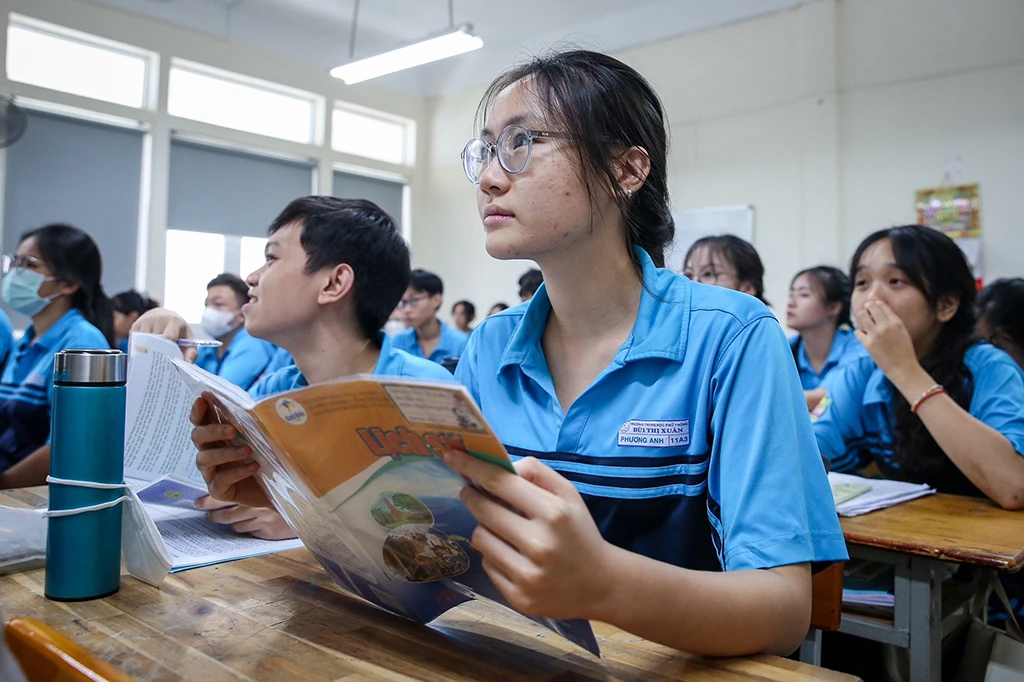
This year's 11th graders will be the first batch of candidates to take the high school graduation exam under the new plan.
Thus, the number of subjects and the fact that students know in advance which subjects they will take is completely similar to the high school exam more than 40 years ago. However, the 4-subject exam in 2025 has many new points (there are 36 ways to choose subjects, instead of 4 combinations as before) and the requirements to achieve are qualities and abilities, not knowledge and skills as before. Therefore, it is necessary to change synchronously in career education, teaching and learning perspectives, and university admissions to a new level.
The 2018 General Education Program aims to develop students according to their qualities and abilities. General education is divided into two stages: basic education (primary and secondary school) and career orientation (high school). At high school level, students are differentiated according to their talents and career orientation by choosing from many combinations. In addition to 8 compulsory subjects/educational activities (math, literature, foreign language, history, physical education, national defense and security education, local education, experiential activities - career orientation), students can choose 4 more subjects from among the subjects (geography, physics, chemistry, biology, information technology, technology, economic and legal education, fine arts, music).
This requires students to know their abilities, capacities, talents, and career trends that are suitable for them in the future in order to choose the most suitable subjects and graduation exams. Therefore, experiential education and career guidance at junior high and high school levels are very important, including learning and career guidance.
In particular, learning orientation is to help learners form and build learning methods and choose subjects at junior high and high school levels that are most suitable for each individual student. Career orientation is to help learners have the ability to evaluate themselves to choose suitable majors and careers in the future.
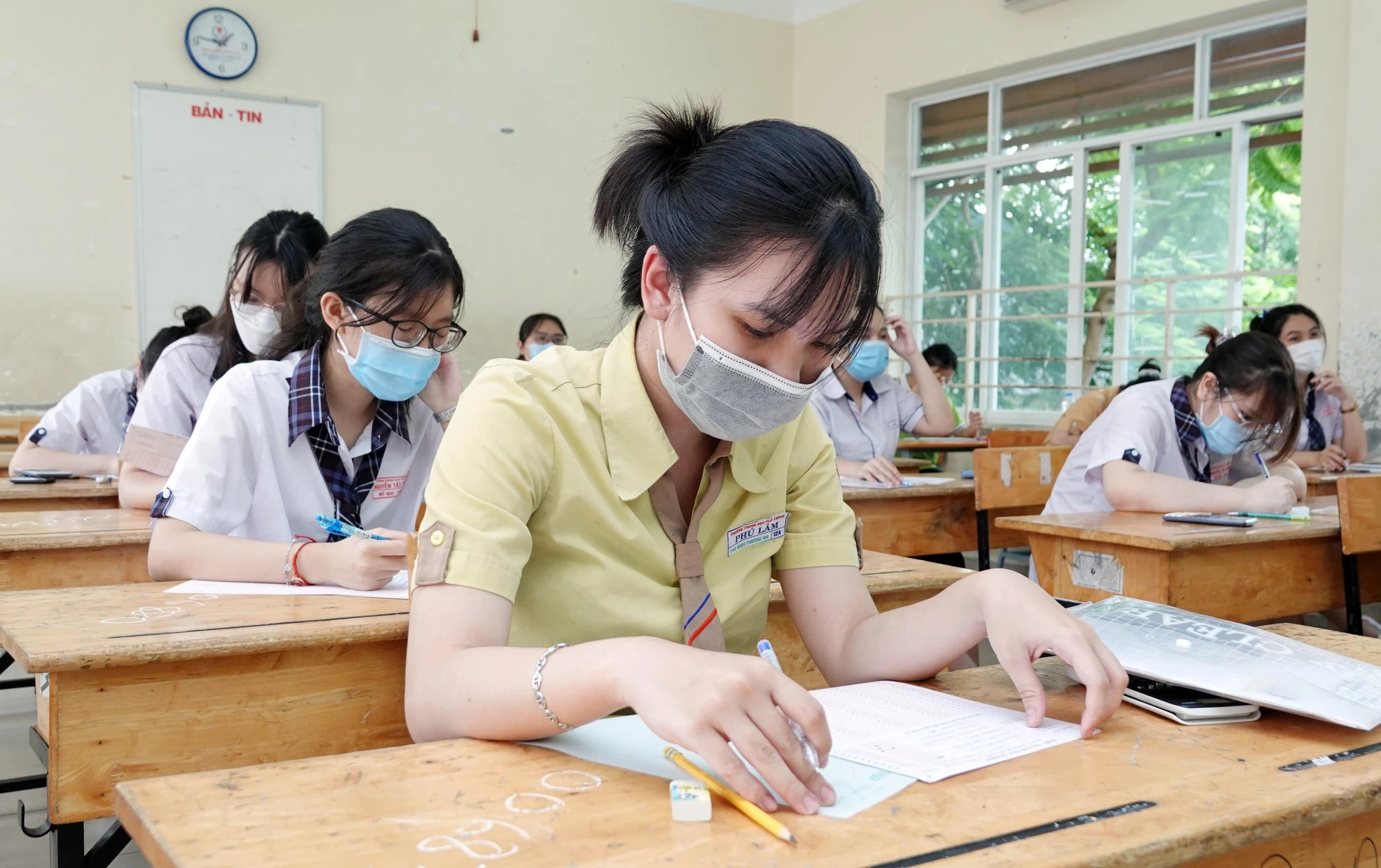
Candidates for the 2023 high school graduation exam. From 2025, the high school graduation exam will be renewed to match the 2018 General Education Program.
DON'T TAKE THIS SUBJECT IMPORTANTLY, LESS THAN THAT SUBJECT
It is necessary to affirm that the role of subjects contributing to the success of students is the same, there is no main subject or secondary subject. Some instrumental subjects such as math, literature, foreign languages or history play a big role in educating patriotism, and are compulsory subjects. However, the success of many students when they graduate can be in other subjects, not just compulsory subjects.
Schools must focus on teaching and learning all subjects, not giving importance to one subject and neglecting another. In reality, nearly 40% of students take the graduation exam for the purpose of graduation, so subjects such as technology, economic and legal education, information technology, etc. are very necessary for students who participate in vocational training or work directly after high school.
CHANGING THE WAY COLLEGE ADMISSIONS ARE APPLIED
University admissions from 2025 must change compared to the present. On the one hand, capacity assessment tests must be strengthened, on the other hand, new combinations must be created with subjects such as information technology, technology, economic education and law; or admissions based on academic records must be comprehensively assessed, at least the results of 4 or 5 semesters of high school. Subject combinations with foreign languages or history must increase their quotas, with priority given to international foreign language certificates...
Innovate teaching, testing, and evaluating all subjects. Innovate the perspective on learning. Learning is not to cope with teachers or to take exams (study whatever you take), but to develop qualities and abilities, to become a human, to compete for jobs with artificial intelligence, which has been and is replacing many professions. Foreign languages play an important role in international integration. In order for our country to participate more effectively in the global value chain, we should focus on developing all four skills for students: listening, speaking, reading, and writing, according to Vietnam's 6-level skill standards. Foreign language certificates according to Vietnam's standards should be prioritized in university admissions like international certificates, so that foreign language teaching in high schools can compete with international certificate teaching centers. Strongly innovate the teaching and learning of history, not being subjective, since it is a compulsory subject, students must learn it no matter how it is taught.
Exam 4 subjects by class more than 40 years ago
The 4-subject high school graduation exam method has been applied in our country for a long time. After 1975, in the South, the 12-year education system was implemented, with high school divided into sections. Accordingly, students can choose one of the following 4 sections: Section A (literature - history - geography), Section B (literature - foreign language), Section C (math - physics), Section D (chemistry - biology). Students in all sections study all subjects, but the content of knowledge and the duration of each subject is different, depending on the section.
The high school graduation exam consists of 4 subjects according to each board. Board A (4 subjects: math, literature, history, geography); board B (math, literature, foreign language, history), board C (math, literature, physics, chemistry), board D (math, literature, chemistry, biology). All boards take the two subjects of math and literature, but the level of difficulty of the exam questions varies depending on the board.
The 4-subject graduation exam in the South as above was carried out in the period 1976 - 1980. After the high school graduation exam, the university entrance exam was in 3 groups: A (math, physics, chemistry), B (math, chemistry, biology), C (literature, history, geography). The highlight of the high school graduation exam in this period was that the exam was invigilated and graded very seriously, there was no extra teaching or learning, the school only conducted review sessions for students. By grade 12, students knew in advance and prepared more focusedly for the graduation exam subjects and university entrance exams (if they registered to take the exam). The graduation exam and university entrance exam were all essay-type, the subjects of math, physics, chemistry, biology, in addition to the theory part, there was also a math problem solving part.
The limitation in the 4-subject high school graduation exam in the period 1976 - 1980 was that the exam was in the form of an essay, focusing on testing knowledge, so students often had to memorize, sometimes had to memorize 12th grade textbooks, by reciting lessons. Some students in group C (math, literature, physics, chemistry graduation exam), but took the university entrance exam in group B (math, chemistry, biology), on the contrary, there were students in group D (math, literature, chemistry, biology) but took the university entrance exam in group A (math, physics, chemistry), due to choosing the wrong group.
To avoid lopsided learning
The Ministry of Education and Training's proposal to organize the high school graduation exam from 2025 with 4 subjects is considered reasonable by most teachers, but they still hope the Ministry will calculate some points.
Surveying the opinions of 11th grade students, the first group to take the high school graduation exam under the new program from next year, we found that most of them agreed with the option of fewer subjects. Currently, they have been studying a combination of elective subjects with career orientation according to the 2018 General Education Program. So it is natural that they want to take fewer subjects, mainly subjects according to their chosen direction.
However, with the 4-subject exam plan, there will be long-term consequences. That is, students will study unequally right from the time they register for grade 10. The situation of over-emphasizing one subject and neglecting another is inevitable. Therefore, how should the Ministry of Education and Training consider graduation conditions based on academic records? What is the ratio between academic records and exam scores?
Not requiring foreign language exams will reduce some of students' motivation to study this subject. So the Ministry needs to find a way to encourage students.
Currently, localities and schools use many different sets of textbooks. Some schools even compile their own materials. This requires the accuracy and impartiality of the Ministry of Education and Training in the question-making stage. How closely will the test questions adhere to the requirements? Who will participate in the question-making stage?...
Ngoc Tuan
Source link


![[Photo] Opening of the 11th Conference of the 13th Party Central Committee](https://vstatic.vietnam.vn/vietnam/resource/IMAGE/2025/4/10/f9e717b67de343d7b687cb419c0829a2)
![[Photo] April Festival in Can Tho City](https://vstatic.vietnam.vn/vietnam/resource/IMAGE/2025/4/10/bf5ae82870e648fabfbcc93a25b481ea)

![[Photo] Unique folk games at Chuong Village Festival](https://vstatic.vietnam.vn/vietnam/resource/IMAGE/2025/4/10/cff805a06fdd443b9474c017f98075a4)



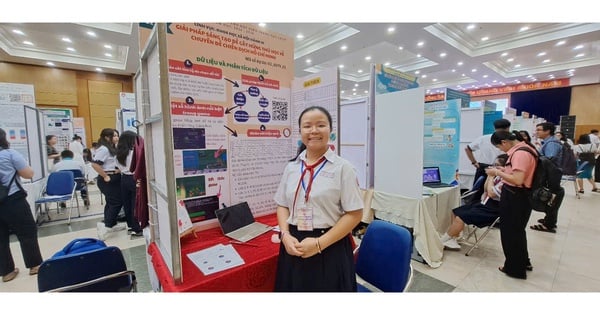

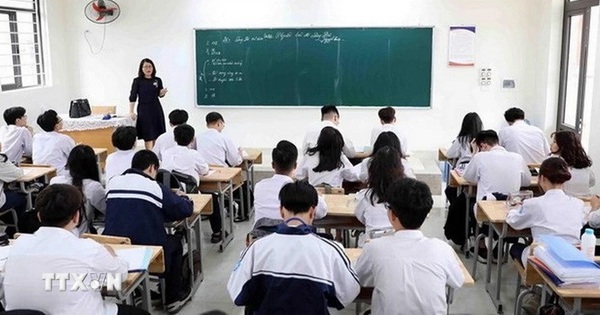

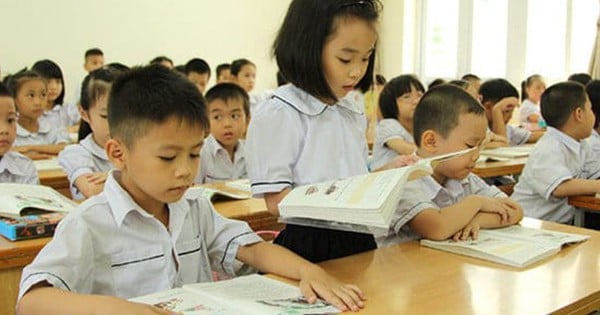



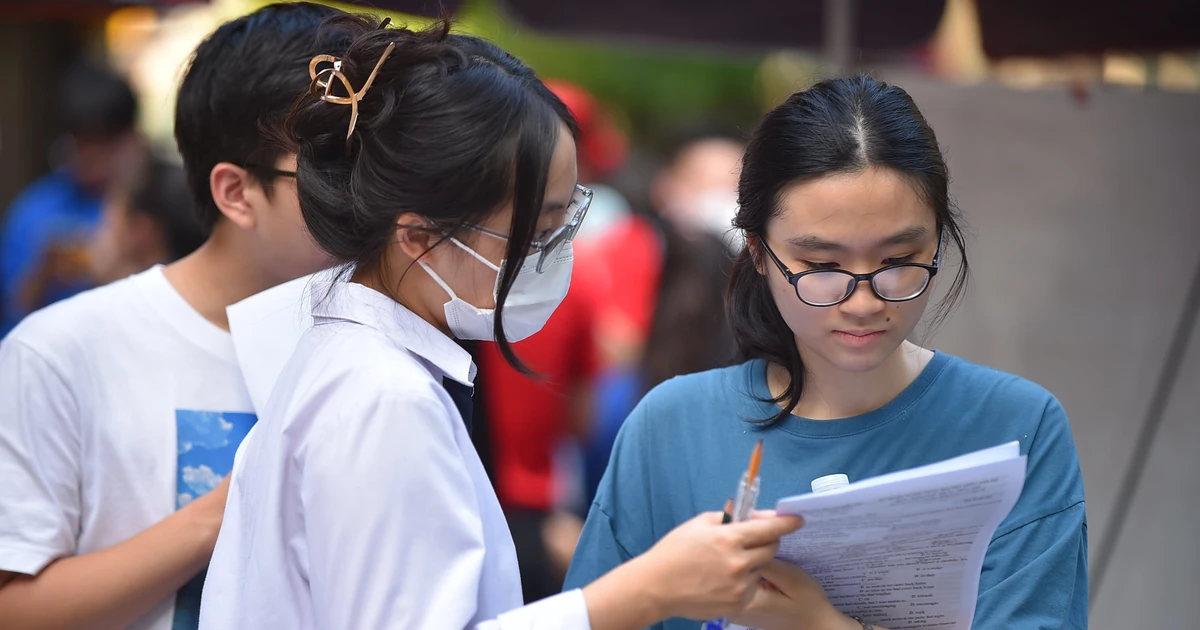

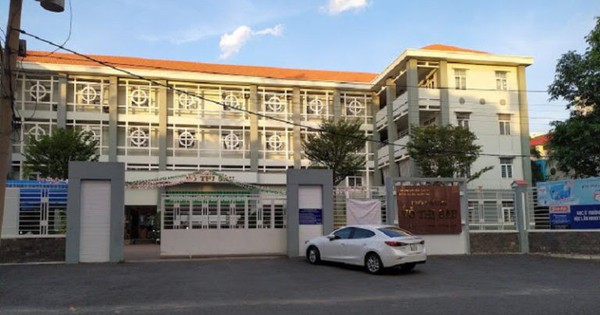































































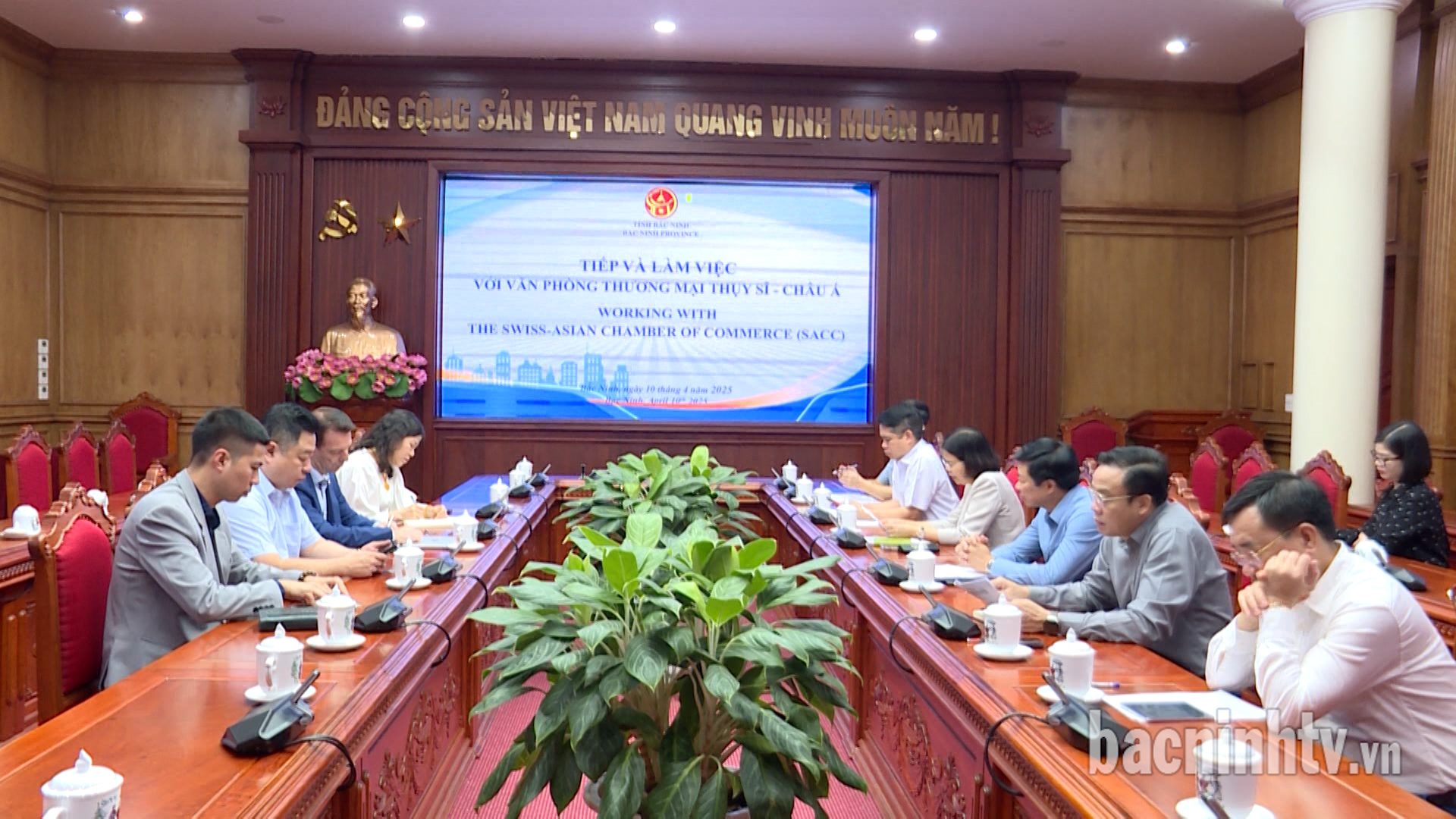








Comment (0)